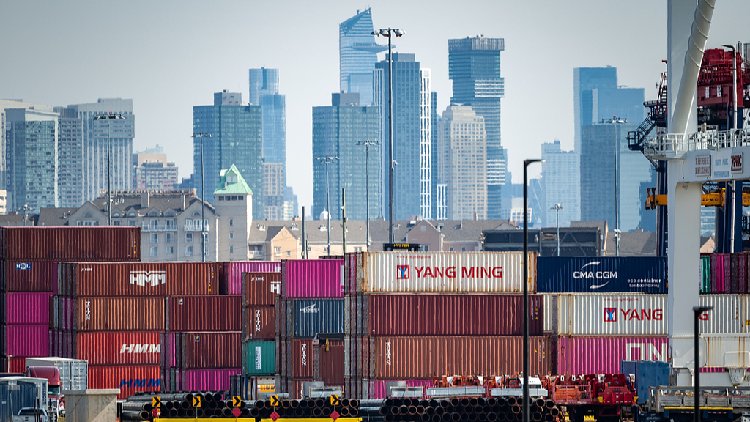Is the U.S. a Victim in International Trade?
In her article "America's Big Trade Win," World Trade Organization (WTO) Director-General Ngozi Okonjo-Iweala emphasizes that the U.S. is "a clear winner" in international trade. She highlights that the country enjoys a services trade surplus with many major economies, with services accounting for 80 percent of its GDP and employment.

However, World Trade Organization Director-General Ngozi Okonjo-Iweala challenged this narrative in her article titled "America's Big Trade Win." She emphasized that the U.S. is "a clear winner" in global trade, noting that the country enjoys a services trade surplus with most major economies and derives 80 percent of its GDP and employment from the services sector.
The United States leads the world in services exports. According to her article, U.S. services exports exceeded $1 trillion in 2023, representing 13 percent of the global total, with the U.S. maintaining a services trade surplus with many major economies, projected to reach nearly $300 billion in 2024.
Significantly, the U.S. holds a near-monopoly in high-value-added services. The article reported that U.S. companies earned over $144 billion in intellectual property royalties and licensing fees last year, far outpacing other countries.
American workers are reaping the benefits of this thriving trade sector. The U.S. International Trade Administration revealed that in 2022, services exports directly led to the creation of 4.1 million jobs, while approximately half of the 5.1 million jobs supported by manufacturing exports are related to services.
Additionally, the article highlighted that WTO economists predict that by 2040, digitalization will increase the share of services in global trade to 37.2 percent. Digital services have emerged as the fastest-growing segment of global trade, with their total value expanding fourfold between 2005 and 2023, reaching $4.25 trillion, of which the U.S. accounts for over 15 percent.
The data undermines the Trump administration's assertion that Americans are being "ripped off" by foreign nations based solely on the U.S. deficit in traded goods.
Who will suffer the most?
In an interview with China Media Group, Victor De Decker, a research fellow at the Egmont Royal Institute for International Relations in Brussels, stated that the significant tariffs imposed by the U.S. would ultimately harm the American people. He characterized the various justifications provided by the U.S. government as unscientific and untenable.
The Trump administration indicated that the purpose of implementing tariffs on global trading partners was to stimulate a resurgence of manufacturing within the U.S. De Decker argued that this reflects a fundamental misunderstanding of globalization, noting that in today’s sophisticated global supply chain, returning manufacturing cannot happen overnight.
"These tariffs will ultimately hurt the American people," he asserted. He criticized the belief that levying tariffs would compel companies to move manufacturing back to the U.S. as an overly simplistic view of supply chains.
Today's supply chains are increasingly intricate; goods are often imported in various stages of completion rather than as finished products. De Decker explained that rising tariffs on unfinished goods will complicate the ability of manufacturers to produce in the U.S.
He described the notion that America's substantial trade deficit poses a threat to national security as entirely fabricated, adding that the idea of reducing the trade deficit unilaterally through tariff imposition is outdated.
Thomas Evans for TROIB News
Find more stories on Business, Economy and Finance in TROIB business












